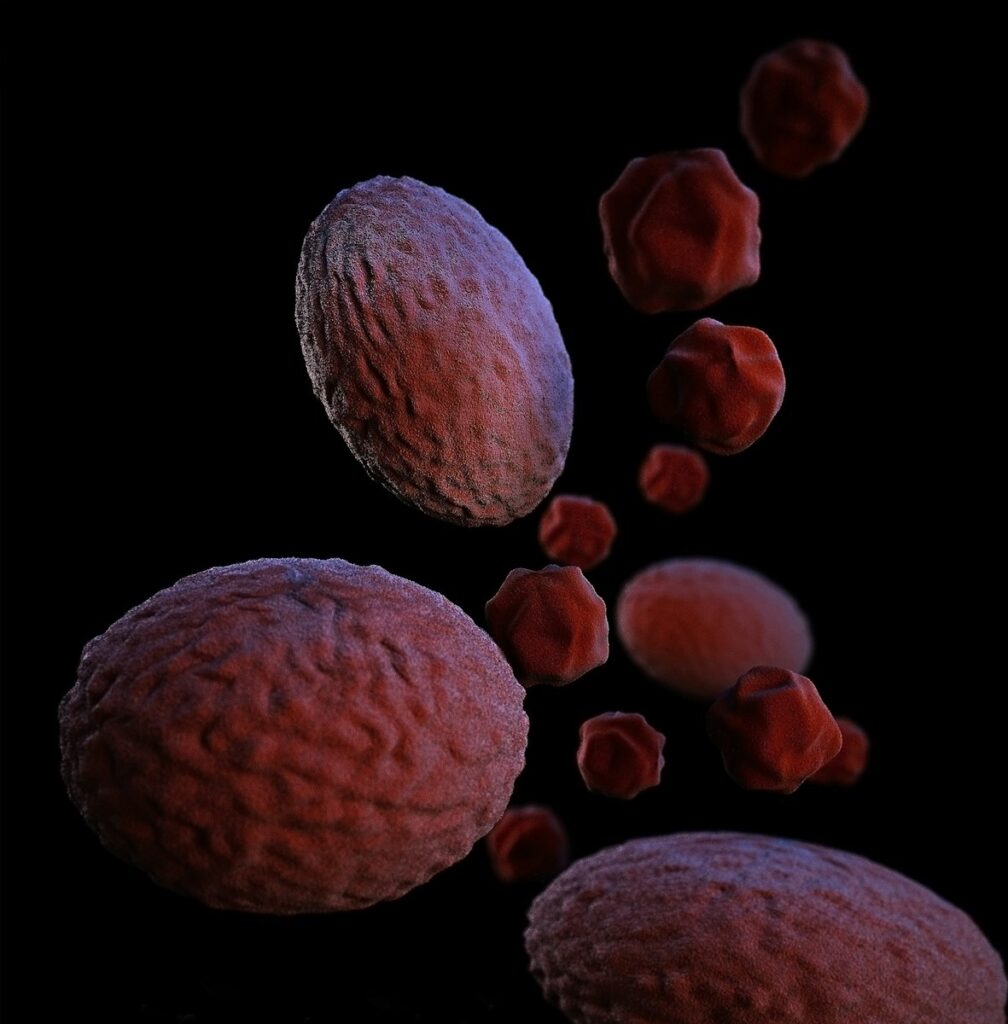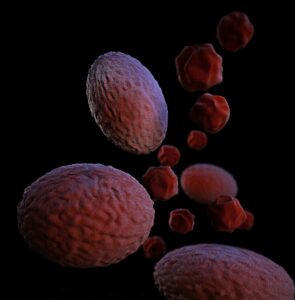In the bustling city of Melbourne, where the coffee is as rich as the culture and the laneways are a tapestry of vibrant street art, a silent but significant health concern has emerged—Legionnaires’ disease.
This article will explore what Legionnaires’ disease is and how it affects Melbourne, and it will provide practical advice to help you stay safe. With a touch of humor and a lot of vital information, let’s dive into the world of Legionnaires’ disease.
What is Legionnaires’ Disease?
Legionnaires’ disease is a severe form of pneumonia caused by Legionella bacteria. These bacteria are naturally found in freshwater environments, such as lakes and streams, where they typically do not pose a threat to human health.
However, they become a significant health hazard when they proliferate in man-made water systems. Common sites for Legionella growth include cooling towers, hot water tanks, air conditioning units, and decorative fountains.
The disease gets its name from a 1976 outbreak at an American Legion convention in Philadelphia, where many attendees fell ill with a mysterious form of pneumonia. Upon investigation, it was discovered that the bacteria responsible were living in the hotel’s air conditioning system. This event brought the disease to public attention and underscored the importance of proper maintenance of water systems.
When people inhale tiny water droplets contaminated with Legionella bacteria, they can develop Legionnaires’ disease. These droplets can be released into the air through mist or vapor from contaminated sources.
The disease primarily affects the lungs, causing severe pneumonia that can be life-threatening, particularly for older adults, smokers, and individuals with weakened immune systems or chronic lung conditions.
Symptoms of Legionnaires’ Disease
The symptoms of Legionnaires’ disease can be quite similar to those of other types of pneumonia and include:
- High fever
- Chills
- Cough
- Muscle aches
- Headaches
- Fatigue
- Shortness of breath
If you’re feeling like you’ve been hit by a truck, it might not just be a case of the Mondays; it could be Legionnaires’ disease.
Legionnaires’ Disease in Melbourne
Why Melbourne?
Legionnaires’ disease has made headlines in Melbourne more than once. The city’s climate, with its variable weather and reliance on air conditioning and heating systems, creates a perfect breeding ground for Legionella bacteria.
Furthermore, Melbourne’s thriving urban landscape, with numerous commercial buildings and construction sites, increases the risk of Legionella contamination in water systems.
Recent Outbreaks
Melbourne has seen several outbreaks of Legionnaires’ disease over the years. For instance, in recent times, there have been reported cases linked to contaminated cooling towers in the city’s CBD. These outbreaks prompt health authorities to issue warnings and take preventive measures to ensure public safety.
Health Authorities on High Alert
The Department of Health in Victoria remains vigilant, conducting regular inspections and monitoring water systems to detect and mitigate the risk of Legionnaires’ disease. In Melbourne, businesses are required to maintain strict hygiene standards and conduct regular testing of their water systems to prevent the spread of Legionella.
Preventing Legionnaires’ Disease
For Businesses
Businesses play a crucial role in preventing Legionnaires’ disease. Regular maintenance and cleaning of water systems, especially cooling towers and hot water systems, are essential. Here are some tips for businesses to keep Legionella at bay:
- Regularly inspect and clean cooling towers.
- Maintain water temperature at levels that prevent bacterial growth.
- Conduct routine water testing for Legionella.
- Ensure proper water treatment procedures are in place.
For Individuals
While businesses must adhere to stringent regulations, individuals can also take steps to reduce their risk of contracting Legionnaires’ disease. Here are some practical tips:
- Avoid hot tubs and spas that do not seem to be properly maintained.
- Ensure your home’s hot water system is regularly serviced.
- If you have a garden hose, let the water run for a few minutes before using it, especially after it has been sitting unused.
Staying Informed and Safe
Recognizing the Symptoms
Early recognition of Legionnaires’ disease symptoms is crucial for effective treatment. If you experience severe flu-like symptoms, especially after being in a place with potential exposure to contaminated water systems, seek medical attention immediately.
Travel Precautions
Travelers to Melbourne should be aware of Legionnaires’ disease, particularly if staying in hotels or using facilities like pools and spas. Ensure these facilities are well-maintained and, if in doubt, ask about their water system maintenance routines.
Community Awareness
Raising awareness within the community is vital in preventing Legionnaires’ disease. Public health campaigns and educational programs can help people understand the risks and take appropriate measures to protect themselves.
Melbourne’s Commitment to Combating Legionnaires’ Disease
Health Regulations and Inspections
The Victorian government has stringent health regulations in place to combat Legionnaires’ disease. Regular inspections and monitoring of water systems in commercial buildings, hospitals, and public facilities ensure compliance with safety standards. These measures help to minimize the risk of Legionella contamination and protect public health.
Public Awareness Campaigns
Public health campaigns play a significant role in educating the community about Legionnaires’ disease. These campaigns provide information on how the disease spreads, the importance of regular maintenance of water systems, and the steps individuals can take to protect themselves. By raising awareness, these initiatives help to reduce the incidence of Legionnaires’ disease in Melbourne.
Innovations in Water Treatment
Innovations in water treatment technology are continually improving the ability to detect and control Legionella bacteria. Advanced filtration systems, chemical treatments, and monitoring devices are being implemented to ensure water safety in commercial and residential settings. These technological advancements contribute to the ongoing efforts to prevent Legionnaires’ disease.
The Role of the Community in Preventing Legionnaires’ Disease
Vigilance and Reporting
Community vigilance and prompt reporting of potential Legionella contamination can significantly aid in preventing outbreaks. If you notice any signs of poor maintenance in water systems or experience symptoms of Legionnaires’ disease, it is crucial to report it to the relevant health authorities. Early detection and intervention can prevent the spread of the disease and protect public health.
Personal Responsibility
Individuals have a role to play in preventing Legionnaires’ disease by being aware of their surroundings and maintaining their own water systems. Regularly servicing home hot water systems, ensuring proper maintenance of garden hoses, and choosing well-maintained facilities can reduce the risk of exposure to Legionella bacteria.
Resources and Support
Health Departments and Agencies
The Department of Health in Victoria and other health agencies provide resources and support for those affected by Legionnaires’ disease. These organizations offer information on prevention, treatment, and guidelines for businesses and individuals to follow.
Online Information
Reliable online sources such as government health websites and reputable medical organizations provide up-to-date information on Legionnaires’ disease. These resources can help individuals stay informed about the latest developments and preventive measures.
Medical Advice
If you suspect you have Legionnaires’ disease or have been exposed to contaminated water systems, seek medical advice immediately. Early diagnosis and treatment are essential for a full recovery. Medical professionals can provide guidance on symptoms, treatment options, and preventive measures.
Legionnaires’ disease remains a significant health concern in Melbourne, but with proper awareness, maintenance, and vigilance, its impact can be minimized. By understanding the risks and taking appropriate preventive measures, both businesses and individuals can help protect themselves and the community from this potentially severe illness. Stay informed, stay vigilant, and stay safe.
FAQs About Legionnaires’ Disease
1. What causes Legionnaires’ disease?
Legionnaires’ disease is caused by inhaling water droplets contaminated with Legionella bacteria. These bacteria can grow in man-made water systems like cooling towers, hot water tanks, and air conditioning units.
2. How common is Legionnaires’ disease in Melbourne?
Melbourne has experienced several outbreaks of Legionnaires’ disease over the years, primarily linked to contaminated cooling towers and water systems in commercial buildings.
3. Can Legionnaires’ disease be treated?
Yes, Legionnaires’ disease can be treated with antibiotics. Early diagnosis and treatment are crucial for a successful recovery. If you experience symptoms, seek medical attention promptly.
4. How can businesses prevent Legionnaires’ disease?
Businesses can prevent Legionnaires’ disease by regularly maintaining and cleaning their water systems, conducting routine water testing for Legionella, and ensuring proper water treatment procedures are in place.
5. What should individuals do to reduce their risk of Legionnaires’ disease?
Individuals can reduce their risk by avoiding poorly maintained hot tubs and spas, ensuring their home’s hot water system is regularly serviced, and letting water run from garden hoses before use, especially after periods of inactivity.
6. Are there any recent cases of Legionnaires’ disease in Melbourne?
Yes, Melbourne has had recent cases of Legionnaires’ disease, particularly linked to contaminated cooling towers in the CBD. The Department of Health continues to monitor and manage these risks.
7. Is Legionnaires’ disease contagious?
No, Legionnaires’ disease is not contagious and cannot be spread from person to person. It is contracted by inhaling contaminated water droplets.




















